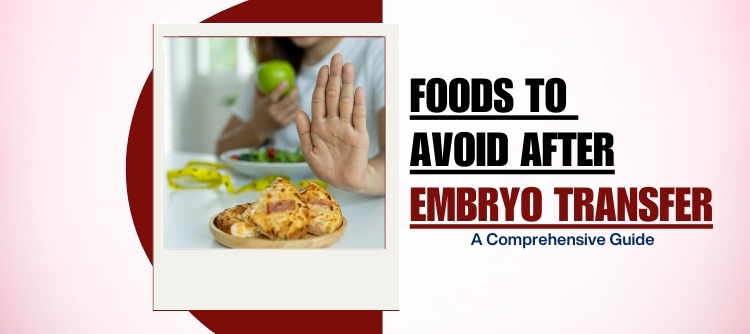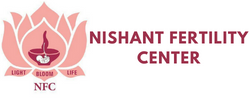Foods to Avoid After Embryo Transfer: A Comprehensive Guide

Embryo transfer is considered a critical stage in the in-vitro fertilization (IVF) process, where the embryo is placed into the uterus to establish a successful pregnancy. During this phase, extra care must be taken, including following the right dietary habits. Certain foods are best avoided after embryo transfer to support implantation and improve the chances of a positive outcome.
Why Diet Matters After Embryo Transfer
The body undergoes several hormonal and physiological changes after embryo transfer. A balanced diet is required to provide essential nutrients, while certain foods must be eliminated as they may affect implantation and early pregnancy development.
Foods to Avoid After Embryo Transfer
1. Processed and Junk Foods
Excess salt, unhealthy fats, and preservatives are commonly found in processed foods, which can cause inflammation and digestive issues. It is advisable to consume fresh and home-cooked meals instead.
2. High-Sugar Foods and Beverages
Blood sugar fluctuations may impact hormonal balance, which is crucial after embryo transfer. Sugary snacks, carbonated drinks, and desserts should be avoided to maintain stability in blood sugar levels.
3. Raw or Undercooked Foods
Raw seafood, unpasteurized dairy, and undercooked meat may contain harmful bacteria, increasing the risk of infections. To ensure safety, only fully cooked and pasteurized options should be consumed.
4. Caffeine and Alcohol
Excessive caffeine consumption has been linked to hormonal disturbances, while alcohol may negatively affect early pregnancy development. It is recommended that both be avoided or kept to a minimal level.
5. High-Mercury Fish
Certain fish, such as swordfish, mackerel, and tuna, contain high mercury levels, which can be harmful to fetal development. Choosing low-mercury fish options is a safer alternative.
6. Spicy and Gas-Inducing Foods
Digestive discomfort and bloating can result from consuming overly spicy or gas-inducing foods such as beans, cabbage, and carbonated drinks. Mild and easily digestible meals should be preferred.

Additional Dietary Considerations
• Hydration must be maintained by drinking enough water throughout the day.
• A fiber-rich diet should be consumed to prevent constipation.
• Small, frequent meals are recommended to support digestion and overall well-being.
Conclusion
A healthy diet plays a significant role in post-embryo transfer care. By avoiding certain foods, the chances of implantation and pregnancy success can be improved. A well-balanced and nutritious meal plan should be followed, and for personalized guidance, expert advice can be sought at Nishant Fertility Centre Care.
